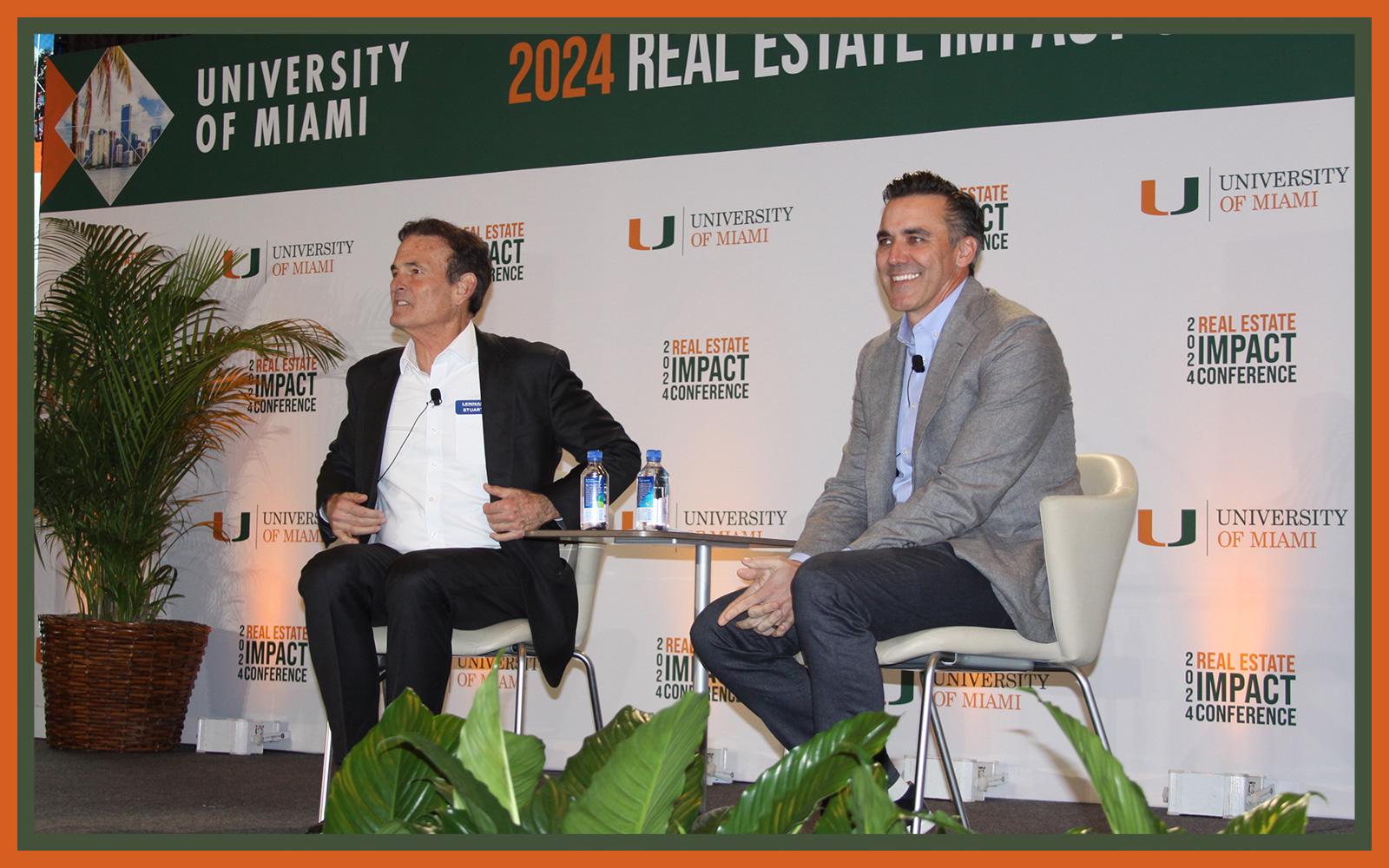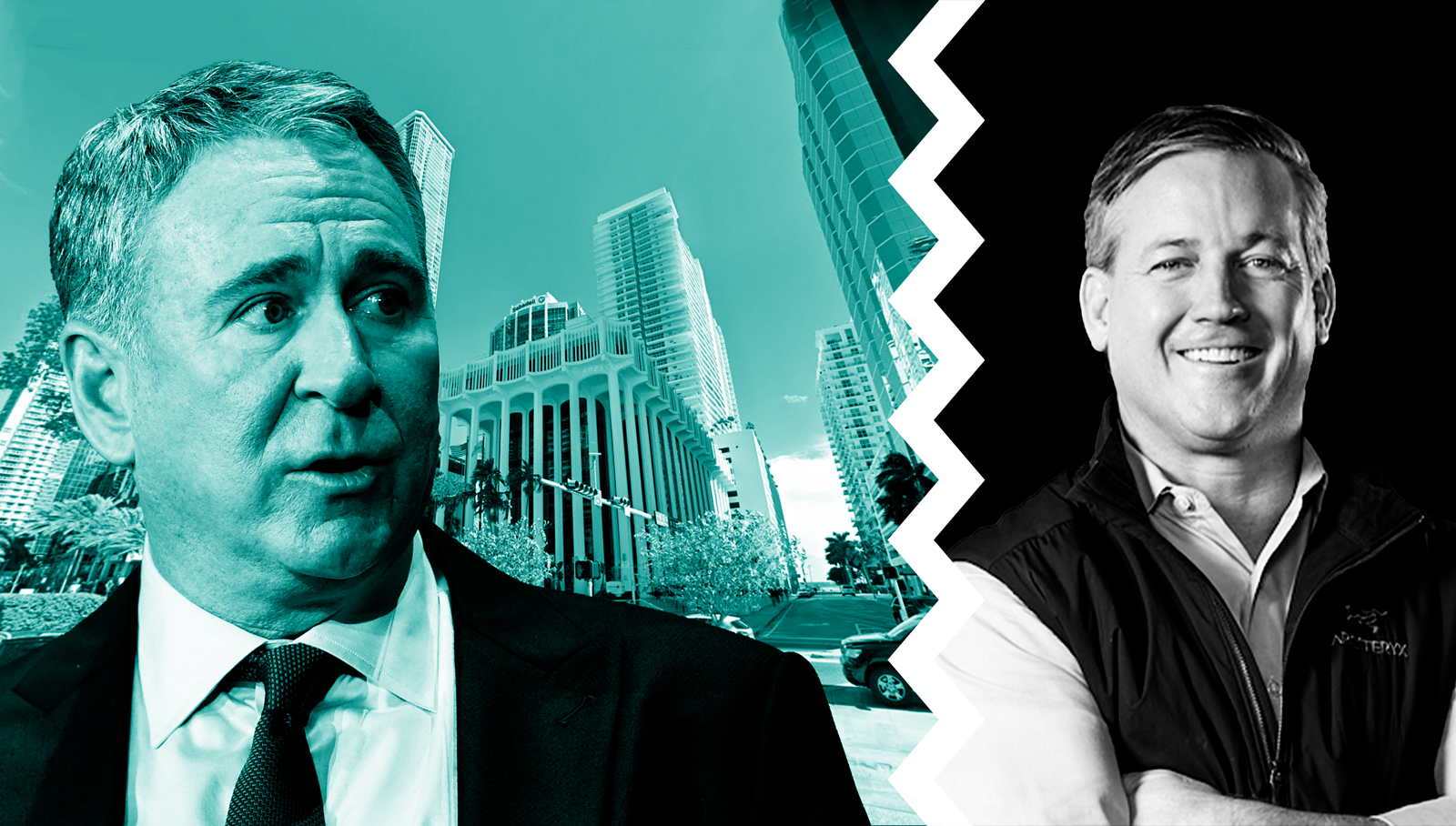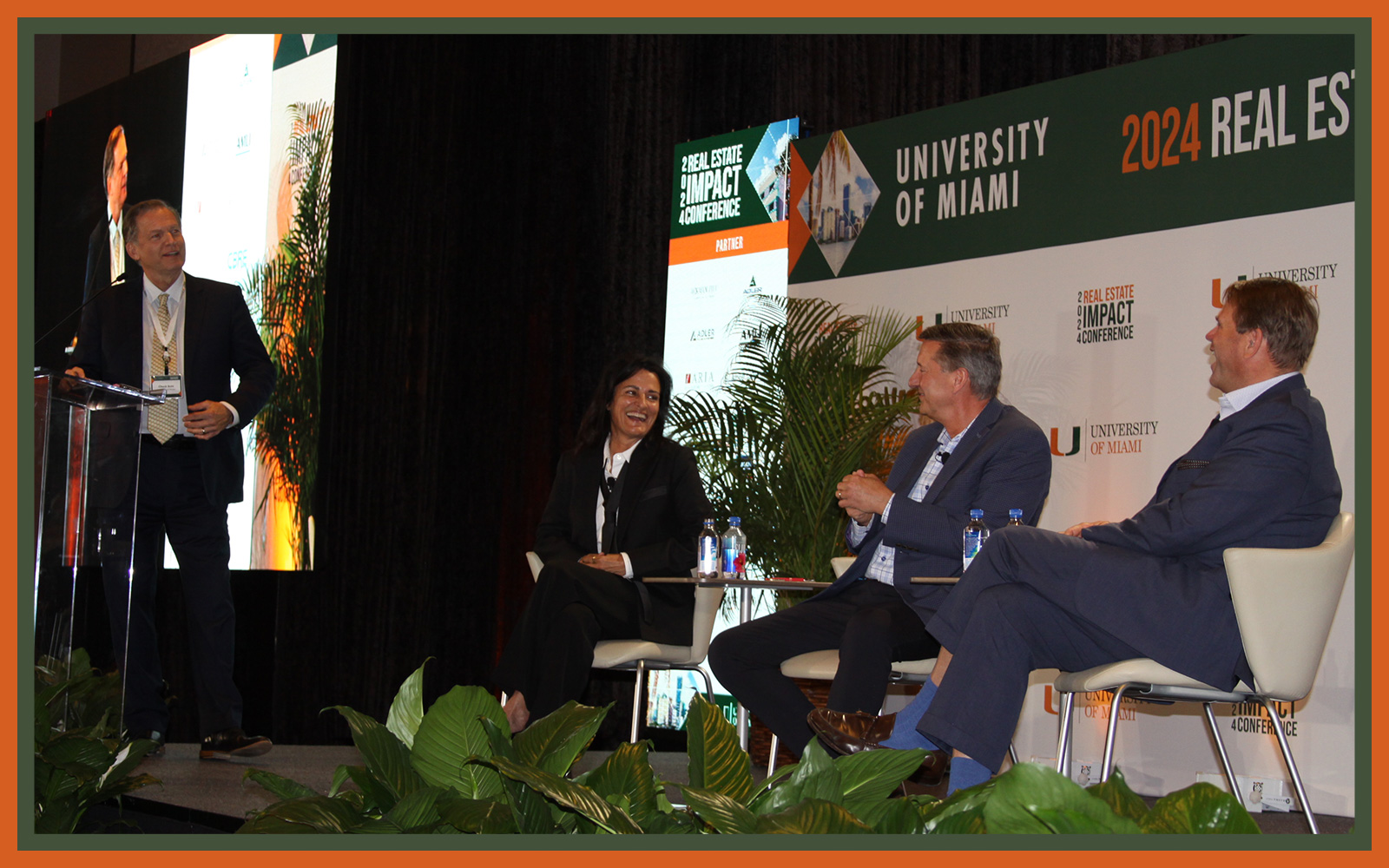Citadel remains steadfast in its belief that companies will bring employees back to the office, despite some firms opting to downsize and certain industries still allowing remote work, an executive with the hedge fund said.
“The financial services sector, they have leaned [into] the value of being in the office. And it’s not just a three-day a week conversation. It’s a five-day a week conversation,” said Paul Darrah, chief workplace officer at Miami-based Citadel. “It’s about innovation, collaboration, mentorship and culture. Some of the other industries are a little behind in allowing a bit more flexibility.”
Darrah, who recently joined Citadel after nearly seven years at Google, spoke at the annual University of Miami Real Estate Impact Conference on Friday in Coral Gables.
Other featured speakers on three panels at the conference included David Martin of Miami-based Terra and Stuart Miller of Miami-based Lennar. Michael Phillips, chairman and president of Atlanta-based Jamestown joined Darrah during the second panel, titled “The Next Downtown.” The duo discussed the shift in office real estate away from simply providing a desk to being a “place” and a “community” for staff members.

“It’s not just coming to the office. It’s coming to a community that they work in. They spend more time in that community than they might at home,” Darrah said. “Getting them connected to Miami is a really important part of our growth.”
Case in point: Citadel staff members volunteer at the Underline project, a linear park that runs underneath the Metrorail tracks.
Darrah stayed tight-lipped about plans for Citadel and Citadel Securities’ headquarters tower on a bayfront site in Brickell, refusing to answer questions about it during and after the panel.
“I plead the fifth on that one,” he responded when moderator and South Florida developer Avra Jain asked about the project.
Billionaire Ken Griffin moved his hedge fund Citadel and Citadel Securities’ headquarters to Miami in 2022 from the firms’ longtime base in Chicago. The Brickell headquarters tower is expected to rise on the bayfront site at 1201 Brickell Bay Drive, which Griffin bought for a record $363 million in 2022.
Read more



During the panel, Darrah said Citadel’s South Florida employee headcount has grown from 29 when it announced the move to 250 now. And, the company is “about to deliver another 130,000 square feet,” he said, though he didn’t clarify where it will be in the tri-county region or whether it will be new construction or leased space.
Overall, return to the office in the U.S. is lagging behind Asia and Europe, said Phillips, who echoed Darrah’s comments about in-office work fostering innovation and collaboration
“The amount of time that it takes to [make] a decision that is actionable when you are remote is very different than when you are together,” he said. “I don’t think it means that everyone needs to be together all the time.”
And, perhaps high-end buildings aren’t always what employees need to return to the office.
“We as a company, we don’t tend to do really high luxury,” Phillips said, describing Jamestown’s offices as “very approachable.” “I fundamentally believe that we as humans are much more comfortable in an imperfect environment. Our homes are never finished. Our lives are always a work in progress.”
Martin, CEO of Coconut Grove-based Terra, and Michael Berkowitz, executive director of UM’s Climate Resilience Academy, discussed the pressing issue of climate change during the conference’s first panel.
At its 98-unit Five Park condo under construction in South Beach, Terra developed roughly a dozen water wells underneath the adjacent 3-acre Canopy Park that store water during rain bombs and alleviate flooding, Martin said.
“What we need to do is build upon that,” he said. “We need to think of ways how private property owners can start storing water. We can’t only think of the government to solve this problem.”
Although Florida has strict building standards and updates its flood zone maps, high flood and windstorm insurance premiums remain a problem for Sunshine State development, he said.
“A lot of times the insurance industry treats us in one fell swoop. They treat a condo building and a new building the same way they would treat a house in Louisiana or the Carolinas,” Martin said.

Governments, however, also can play a role in pushing forward with climate resiliency, Berkowitz said. When he was global head of operational risk management at Deutsche Bank after the Great Recession, bank regulators changed “how they viewed certain loan portfolios,” which “massively incentivized or disincentivized certain business loans,” he said.
The government can step in in a similar manner when it comes to incentivizing climate resilience, including the addition of green space and water retention basins.
“As the climate crisis gets more serious, you might expect regulators to step up and think about what kind of levers they could pull,” Berkowitz said. “And if they could, then that would provide a cheap source of capital to developers like David, who are doing this, this kind of approach and that would provide the money for those amenities.”
Moderator Diana Olick, senior climate and real estate correspondent for CNBC, questioned whether climate change resilient development could take a hit from a potential change in the White House at this year’s election.
“It does make it hard …. [But] that’s why we have the South Florida compact,” Martin said, referring to the regional agreement among Miami-Dade, Broward, Palm Beach and Monroe counties to reduce greenhouse gas emissions and build up resiliency.
Olick also questioned initiatives to build inland and on higher ground. While those projects are sea-level-rise resilient, studies show that in South Florida it’s also leading to climate change gentrification by pushing out minority communities from these areas.
“I’m working in some very sensitive, vulnerable neighborhoods now, and we try to learn about who the people are that live there, and try to become a partner with them and kind of bring them along for our educational ride of what is the right thing,” Martin said.
In the final panel, Miami-based Lennar Executive Chairman and co-CEO Miller and Dallas-based Invitation Homes CEO Dallas Tanner touched on another of South Florida’s biggest issues: the lack of affordable housing.
“How do we make life better for the workforce?” Miller said. In the U.S., “for a variety of reasons, we are not able to drive the supply that is needed.”
Invitation Homes is providing a middle ground for residents through its rent-to-own platform, Tanner said. The model could sometimes help households build up savings to purchase homes.
“Right now, it’s about $1,200 a month cheaper to rent than it would be to own … here in Florida,” Tanner said. “I think there is an equity part being touched on. … There is also this convenience factor and to create flexible solutions for people that want that leasing lifestyle.”
